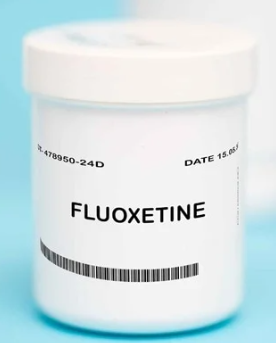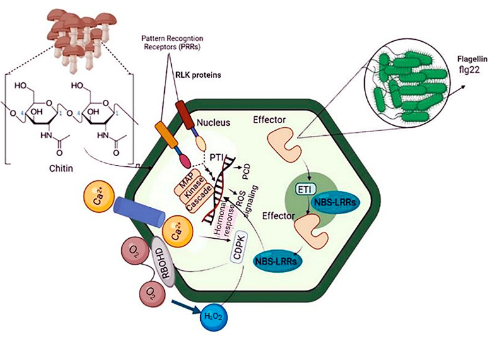Fluoxetine Found to Protect Against Sepsis-Induced Death, Study Reveals
A recent study published in Science Advances has uncovered a new potential benefit of Fluoxetine, a widely used selective serotonin reuptake inhibitor (SSRI). Researchers found that the antidepressant promotes metabolic defenses, offering protection against sepsis-induced fatalities.
Understanding Sepsis and Previous Treatment Challenges
Sepsis is a life-threatening condition triggered by an abnormal immune response to infection, often leading to organ failure. While several clinical trials have attempted to control inflammation by targeting pro-inflammatory cytokines with neutralizing antibodies, these efforts have largely been unsuccessful. Experts suggest that the failure is due to two primary reasons:
- Suppressing inflammation can leave patients immunocompromised, making them more susceptible to secondary infections.
- The timing of intervention is critical, requiring treatment before irreversible damage occurs.
SSRIs, including Fluoxetine, are widely prescribed for depression and anxiety. Beyond their intended function of preventing serotonin reuptake in the brain, these drugs also influence metabolic and immune processes. Notably, past research has shown that SSRIs protect against sepsis in animal models and improve outcomes in COVID-19 patients.
Study Findings: Fluoxetine as a Sepsis-Protective Agent
The research team aimed to investigate Fluoxetine’s effects on sepsis progression and survival using a mouse model.
Fluoxetine Pretreatment Prevents Sepsis-Induced Death
To evaluate the prophylactic effects of Fluoxetine, researchers pretreated mice with the drug before exposing them to a polymicrobial sepsis model involving Staphylococcus aureus and Escherichia coli. The results were promising—mice that received Fluoxetine beforehand had a significantly lower mortality rate.
Additionally, Fluoxetine pretreatment reduced clinical signs of sepsis, such as hypothermia and morbidity. However, administering Fluoxetine after infection had no protective effects.
While both Fluoxetine-treated and untreated infected mice displayed elevated levels of Troponin I—a biomarker of cardiac muscle damage—Fluoxetine-pretreated mice exhibited lower levels of other heart damage markers, including brain natriuretic peptide (BNP) and creatine kinase.
Beyond cardiac protection, Fluoxetine pretreatment also shielded mice from kidney and liver damage. The treated mice showed a reduced pathogen burden in their lungs, spleen, liver, and kidneys, although no significant difference was observed in the heart.
Serotonin and IL-10 Play Key Roles in Protection
Further investigation revealed that Fluoxetine’s protective effects were independent of peripheral serotonin levels. Wild-type mice exhibited lower serotonin concentrations in key organs compared to genetically modified mice lacking peripheral serotonin, yet both groups showed similar survival benefits with Fluoxetine.
Researchers then focused on interleukin-10 (IL-10), an anti-inflammatory cytokine, to determine its role in Fluoxetine’s mechanism of action. Two hours post-infection, Fluoxetine-pretreated mice had significantly higher IL-10 levels in their liver and bloodstream compared to untreated mice.
However, the protective effects of Fluoxetine were eliminated in genetically modified mice lacking IL-10 (Il10-/- mice). These mice showed no resistance to sepsis-induced illness, and their survival benefit dropped by 70%, confirming IL-10’s crucial role in Fluoxetine’s protective mechanism.
Fluoxetine and Lipid Metabolism in Sepsis
Sepsis can cause metabolic imbalances, including altered triglyceride levels. Infected wild-type mice displayed increased serum triglycerides, whereas Fluoxetine-pretreated, infected mice maintained levels similar to healthy controls.
To examine how Fluoxetine influenced lipid metabolism during infection, researchers administered Pluronic F-127—a compound that inhibits lipoprotein lipase (LPL)—to Fluoxetine-pretreated, infected mice. The results showed a slight but statistically insignificant decrease in triglycerides.
Additionally, Fluoxetine-pretreated mice demonstrated enhanced peripheral uptake of triglycerides, a key factor in their survival advantage. However, Il10-/- mice that received Fluoxetine exhibited excessive triglyceride accumulation, indicating that IL-10 plays a role in maintaining lipid balance during infection.
Protecting the Heart: Fluoxetine’s Metabolic Benefits
To understand how Fluoxetine shields organs from damage, researchers focused on its effects on the heart. The study found that Fluoxetine-pretreated mice were protected from excessive BNP levels, a biomarker linked to heart failure.
Importantly, Fluoxetine prevented abnormal triglyceride buildup in the heart, a common issue in sepsis-related cardiac dysfunction. However, no significant changes were observed in fatty acid oxidation (FAO) genes or key enzymes regulating FAO, suggesting that Fluoxetine’s cardioprotective effects stem from a different metabolic pathway.
Using stable isotope metabolomics, researchers examined glucose oxidation in the heart by profiling tricarboxylic acid (TCA) cycle intermediates. They discovered that infected, untreated mice had lower levels of labeled TCA intermediates, indicating impaired glucose oxidation. In contrast, Fluoxetine-pretreated, infected mice maintained normal TCA cycle activity, suggesting that the drug preserved cardiac energy metabolism during sepsis.
Conclusion: Fluoxetine as a Potential Sepsis Treatment
The study highlights Fluoxetine’s ability to act as a prophylactic agent, enhancing survival in sepsis-afflicted mice. Its protective effects were linked to reduced pathogen burden in key organs, preservation of metabolic balance, and increased IL-10 levels.
These findings suggest that Fluoxetine’s off-target effects could offer new therapeutic strategies for managing sepsis. Further clinical research is needed to explore its potential as a preventive treatment for human sepsis cases.








